ANN ARBOR, Mich. — The 2023 BMW X1 has changed in meaningful ways for its third generation. BMW decided bigger is better for this subcompact crossover, and has expanded it in length, width, height and track, making it not just more spacious, but more solid going down the road. Bolder is better for gen 3, too, with a redesigned exterior that gives the X1 more presence while still being kind to the eyes, and an interior that feels interesting and inviting, but also modern in both design and technology. And the cherry on top for 2023 is more power, which, ultimately, means this X1 is faster than last year’s xDrive28i. Not a bad formula, at least at first glance.
To specifically enumerate that added size, the new X1 is 1.7 inches longer overall with a 0.9-inch increase in wheelbase. It’s also 0.9 inches wider and 1.7 inches taller. Finally, the tracks of the front and rear wheels have expanded by 0.8 inches.
In addition to growing in size, the exterior grows in style. Let’s address the elephant in every BMW showroom first. The X1’s double kidney grille is big, yes, but its squared-off shape is considerably more palatable than the prominent, oversized nostrils on other Bimmer faces. And the chunky nose has a nice slant to it, with the sleek headlights tucked under the hood line at the top. The profile has a decidedly better silhouette, with more muscular proportions and longer hood. The lines on the rear have been tucked in nicely, and we like the streamlined look of the taillights and the squared-off corners of the bumper. Overall, it looks bigger, because it is, but the design is also more chiseled and structural, which better suits its sporty demeanor.
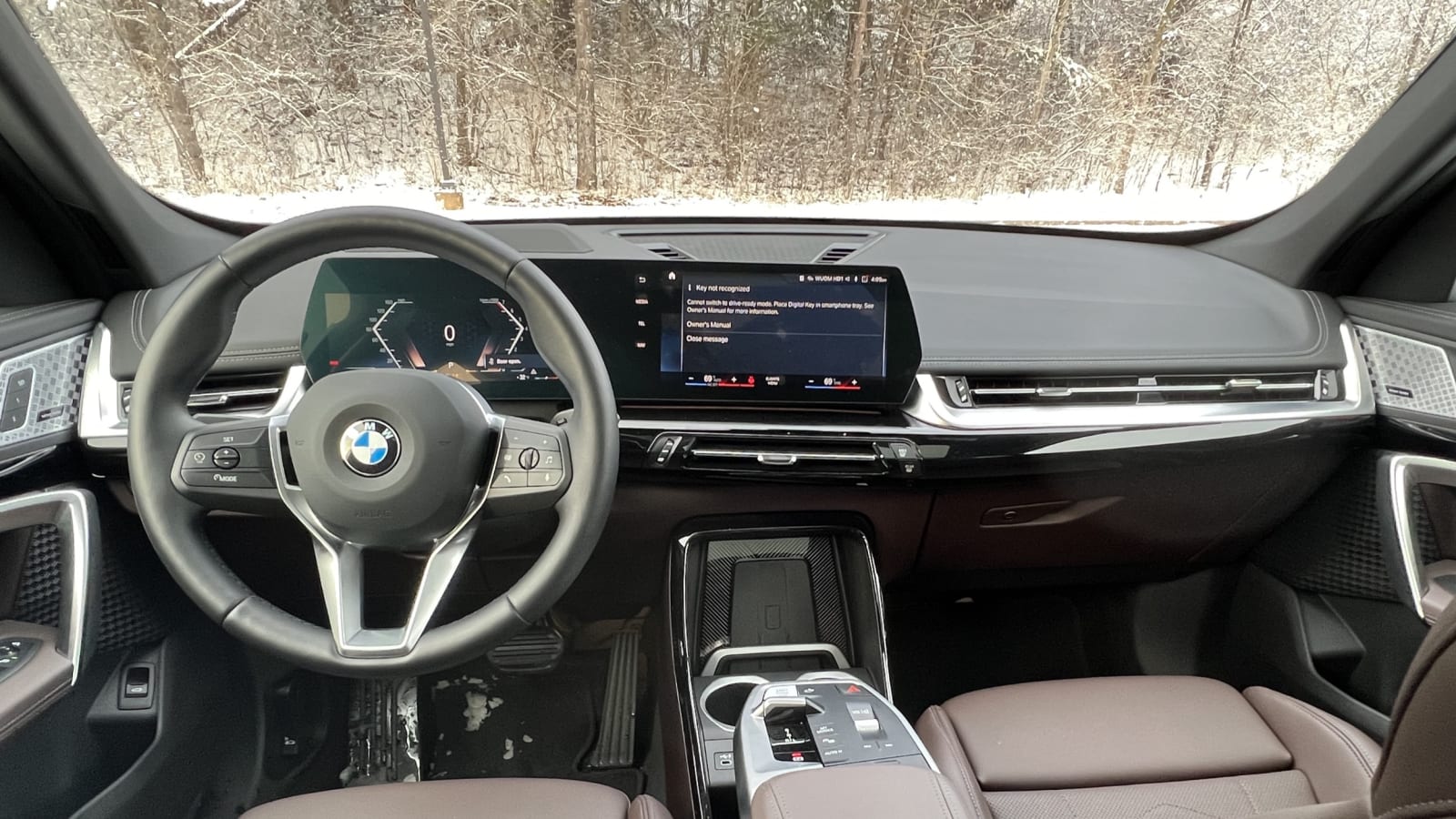
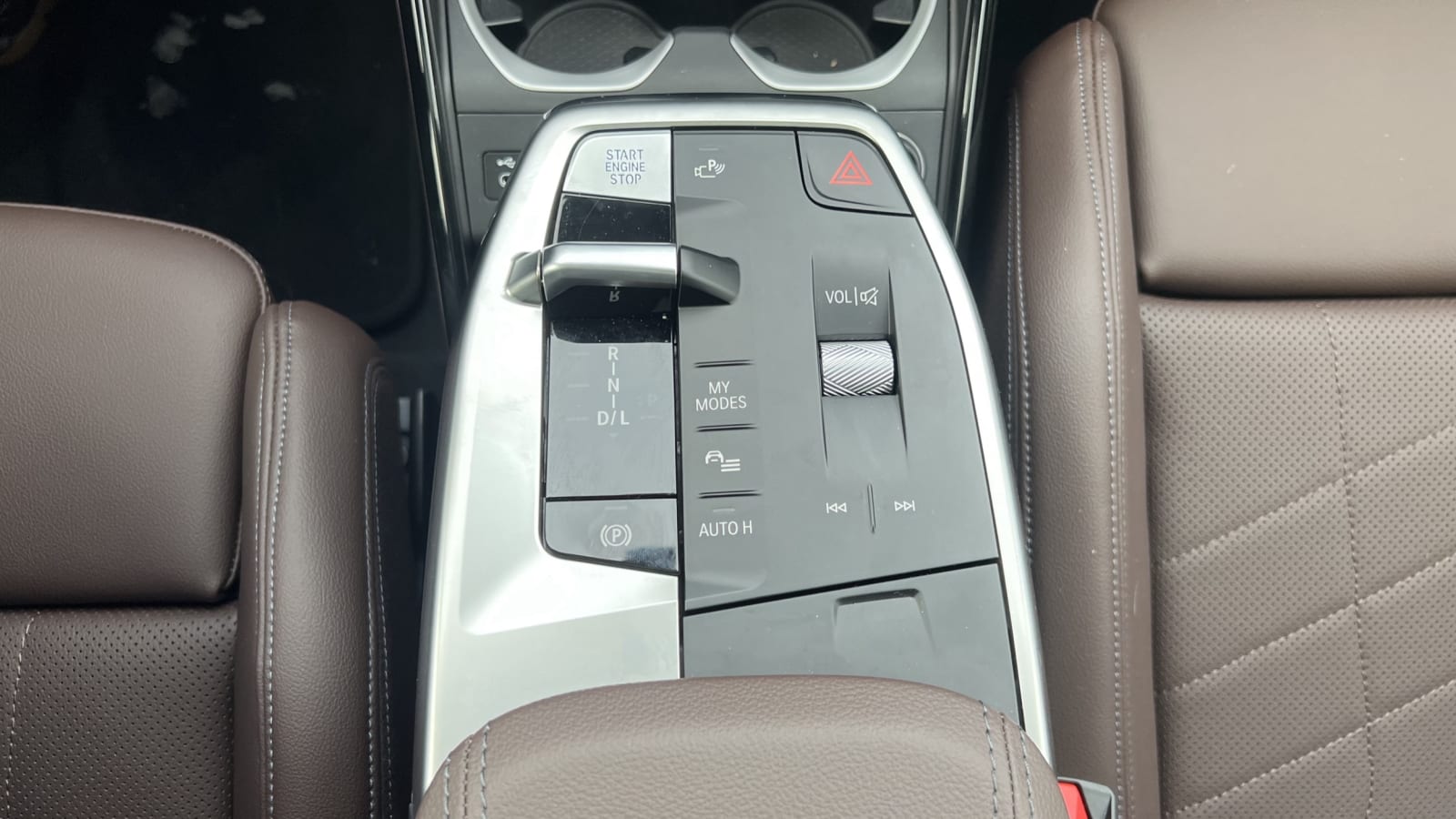
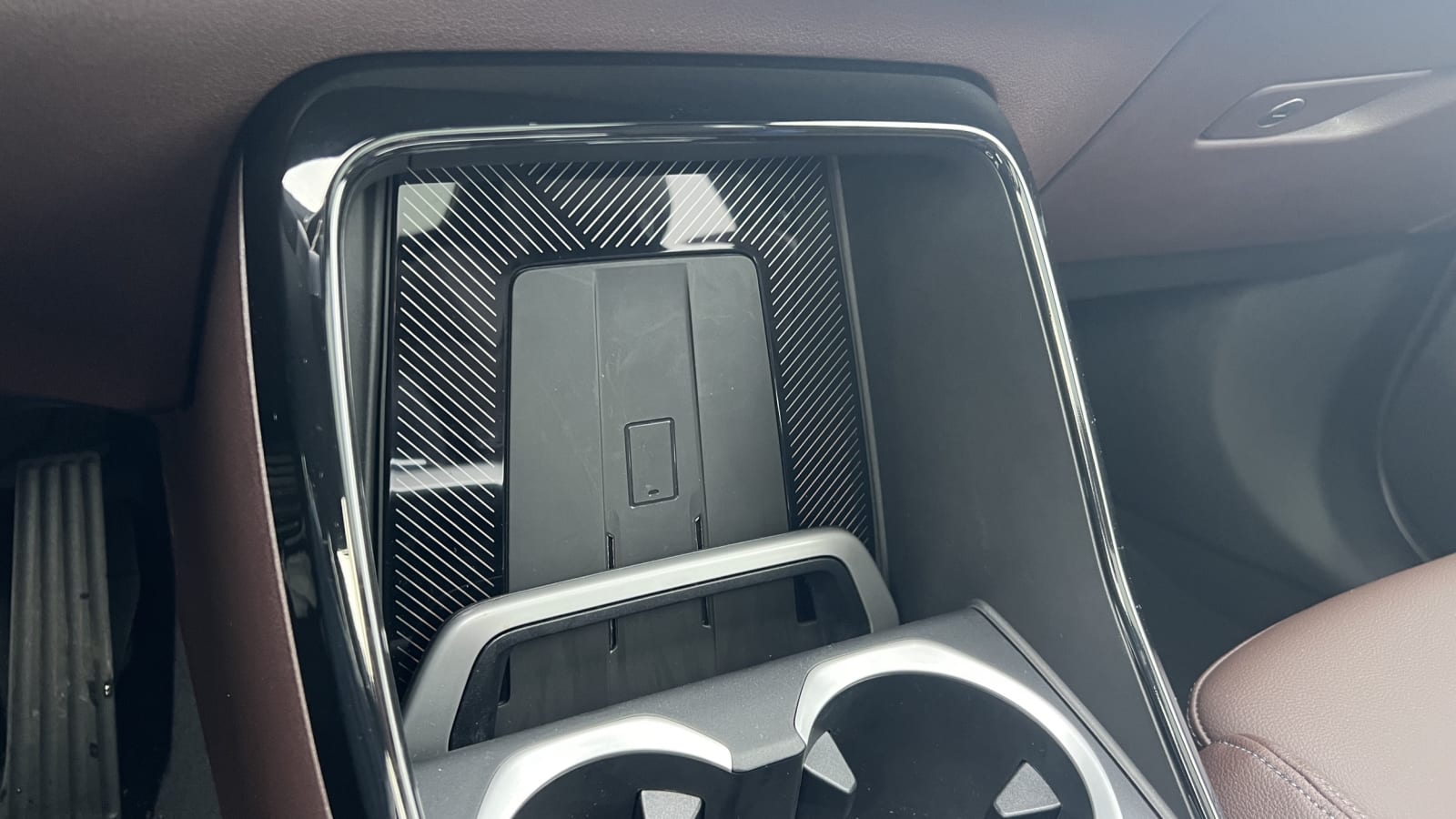
Inside, that step up in size gives the occupants more room, but the subcompact segment limitations remain: The passenger seat still needs to be moved forward quite a bit to put a rear-facing child seat behind it. The optional sport front seats are quite comfortable, offering great lower back and shoulder support. The rear cargo area is smaller on paper, down from 27.1 cubic feet in 2022 to 25.7 cubes in 2023, but we’ll have to wait for West Coast Editor James Riswick to perform one of his luggage tests before we’re willing to declare it any less useful (he can at least say at this moment that BMW cargo numbers are rarely comparable to the industry at large). We do appreciate the versatility that the 40/20/40-split rear seats afford.
The overall interior design is much more interesting, too, with lots of visual intricacies — interesting materials and textures — that make it fun to explore with your eyes, without looking too busy, overwrought or under-thought. A wide, curved display houses both the infotainment screen and the driver’s instrument panel. We wouldn’t mind a secondary controller for the infotainment system as BMW used for years (the familiar and affective iDrive knob is gone), but it helps that the touchscreen is slightly canted toward the driver. The floating center armrest is a clever design element, as is the smaller toggle-style gear selector atop it, and there’s useful storage below. At the bottom of the center stack is an almost upright plane on which to rest and wirelessly charge (if so equipped) your phone, putting it where it can easily be seen if you’re using it for directions. A hinged bar across the bottom keeps it from sliding out of place. It’s appreciated that this area doesn’t invite storage of other detritus that could clutter the cabin and block the charger.
So far, the new X1 is only offered in one flavor: xDrive28i. This employs a turbocharged 2.0-liter inline four-cylinder engine sending power to four wheels via a new seven-speed dual-clutch transmission that replaces the outgoing eight-speed traditional automatic. We have no word on the possibility of a sportier M version, but we’ve got our fingers crossed, as this generation seems more suited to it. As the name suggests, xDrive all-wheel-drive is standard, but just like the last X1 (and unlike the original), gen 3 is underpinned by a front-wheel-drive-based platform.
Stepping onto the right pedal, it takes a beat for much to happen, but then the 2.0-liter engine wakes up and charges to life. From then on, it shows itself to be a good fit for the X1. With 241 horsepower and 295 pound-feet of torque, up from 228 hp and 258 from 2022, that extra power pays dividends as BMW didn’t add significant weight to the X1 (curb weight is up a trivial 24 pounds for 2023). BMW quotes a 0-to-60 time of 6.2 seconds (down from 6.3), but we wouldn’t be surprised if that’s a conservative estimate. Yet, the fuel economy has improved — the 2023 xDrive28i gets 25 miles per gallon in the city, 34 mpg highway and 28 mpg combined, up from 23/31/26 mpg in 2022.
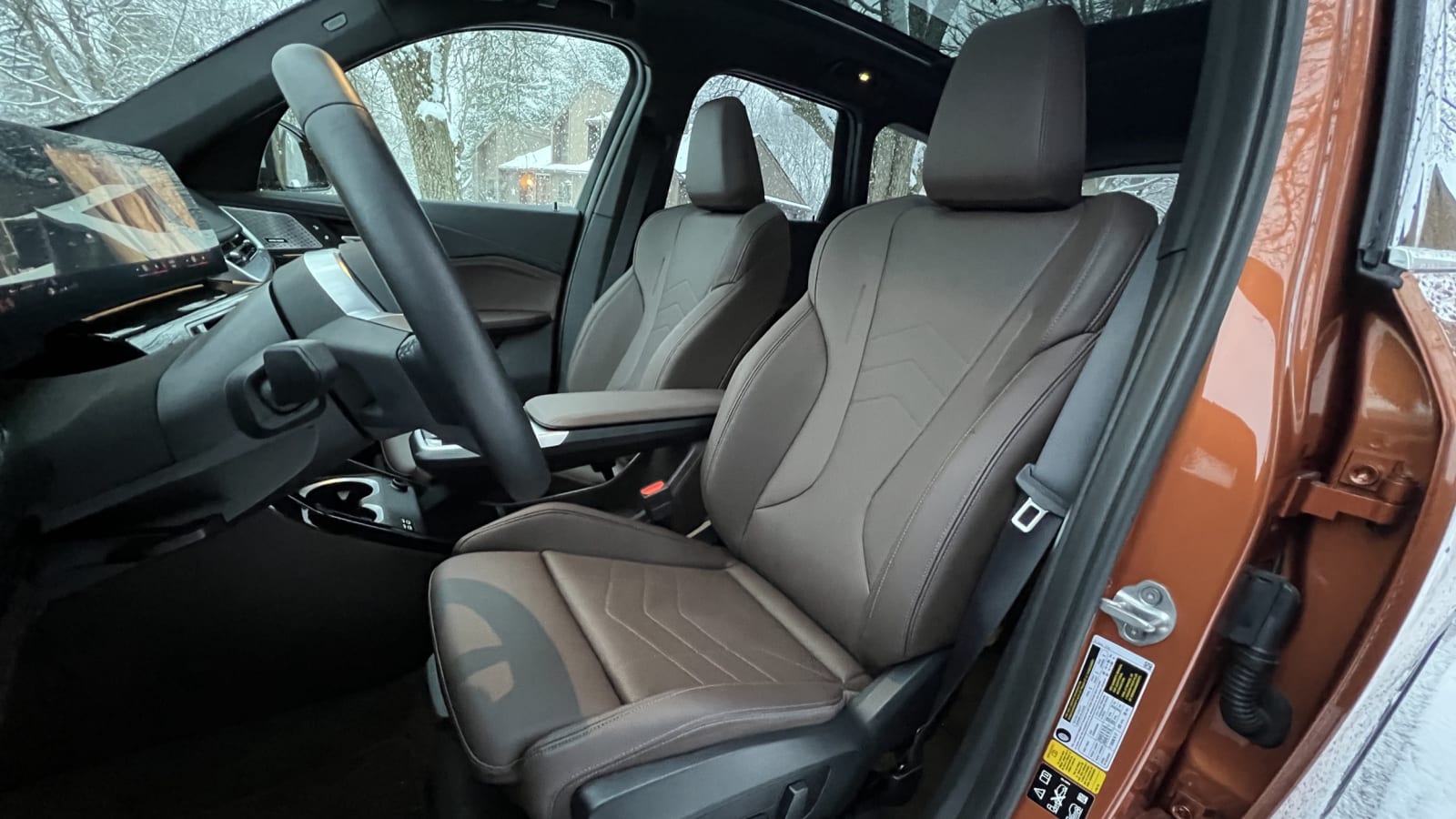
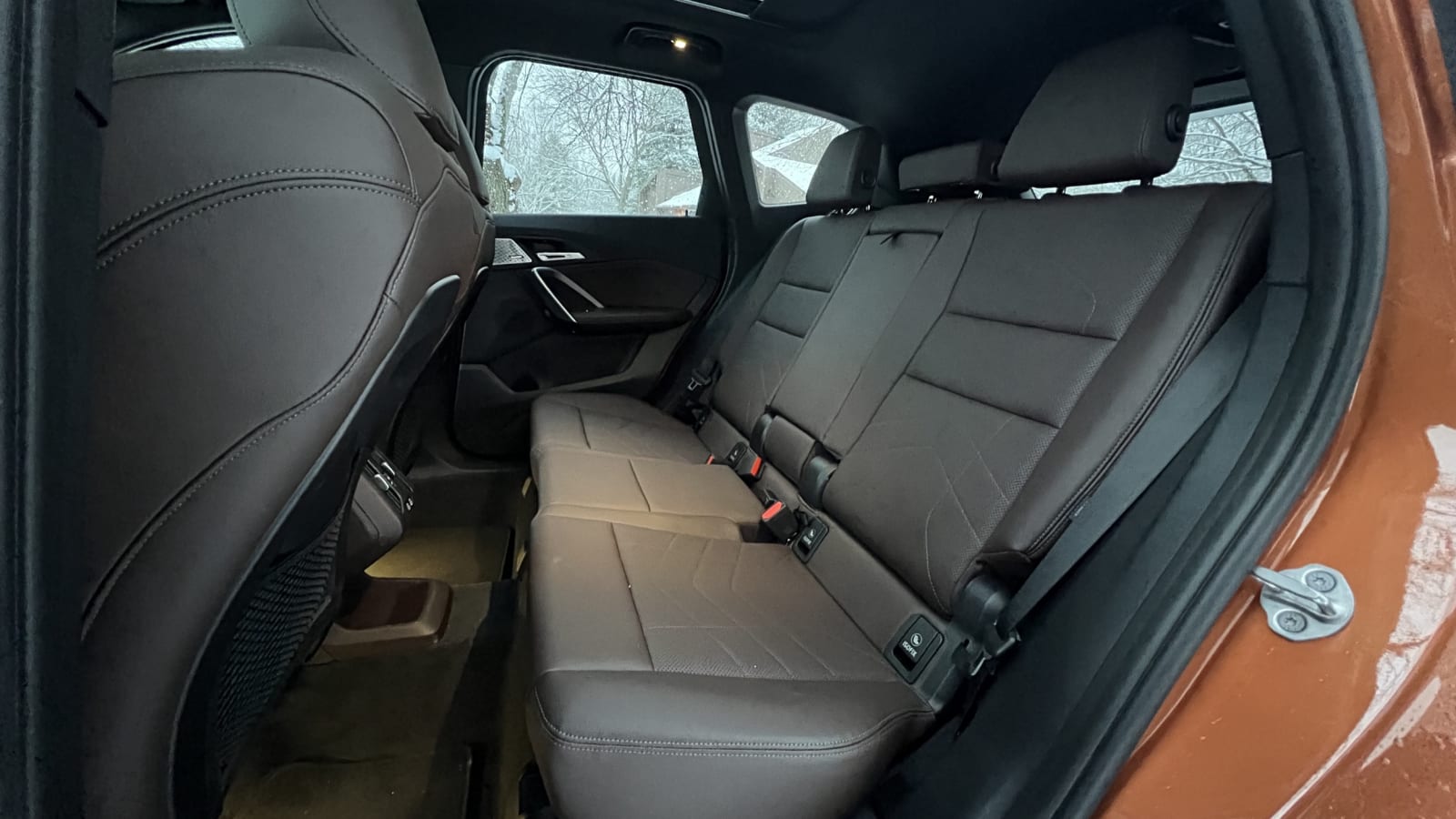
The dual-clutch transmission does its job quickly and smoothly, and we never found the X1 hunting for the right gear. Paddle shifters were a notable exclusion in our tester, though they are available with the M Sport package, which we hope to sample soon, as it also includes an adaptive suspension, a slick M steering wheel and a number of other goodies. It also meant we were missing out on the Sport Boost function, which puts the car into its sportiest settings when you hold the left paddle. Still, we were happy to leave the thinking to the car itself, and appreciated the simplicity of design and function of leaving the paddles off the bill. Interestingly enough, there’s no “P” option to accompany the “RNDL” on the gear selector on the center console. The X1 automatically shifts to park when you turn the car off — we still normally hit the electronic parking brake as a force of habit.
When it comes time to slow things down, there’s a mildly frustrating lack of linearity from the brake pedal. The first bit of pedal travel feels normal and predictable, but beyond that, a continued light touch elicits a strikingly strong response. The brakes suddenly decide to bite hard, bringing you to a jerky stop. It’s odd, and not something we’ve experienced in other BMWs we’ve driven recently. Fine, we thought, we can get used to touchy brakes. But after a week with the car, we still had a difficult time slowing down the X1 in a smooth manner. Maybe a month of ownership would remedy it.
But what might be a problem when you’re trying to keep a gallon of milk from rolling around the cargo area on the way from the grocery store becomes an asset in spirited driving. There’s no need to coax this thing to slow down with a heavy foot, just give it the left pedal the order and the X1 is happy to comply with enthusiastic stopping power. It’s great when you’re trying to set up for that rapidly approaching sharp corner.
And in those corners, the X1 is eager to show you that it can outdo its competitors as a driver’s companion. The steering doesn’t provide much feel or feedback, which is sadly a BMW trait now, but despite being a bit anesthetized, it has appropriate heft, and the accurate response from the wheels up front still provide a rewarding and engaging drive. The wide track helps the X1 feel planted as lateral g forces build, and even the base suspension keeps the car from rolling too much. It’s hard to upset it with quick transitions from one turn to the next, and those supportive sport seats help to keep the driver solidly in place behind the wheel. Bravo.
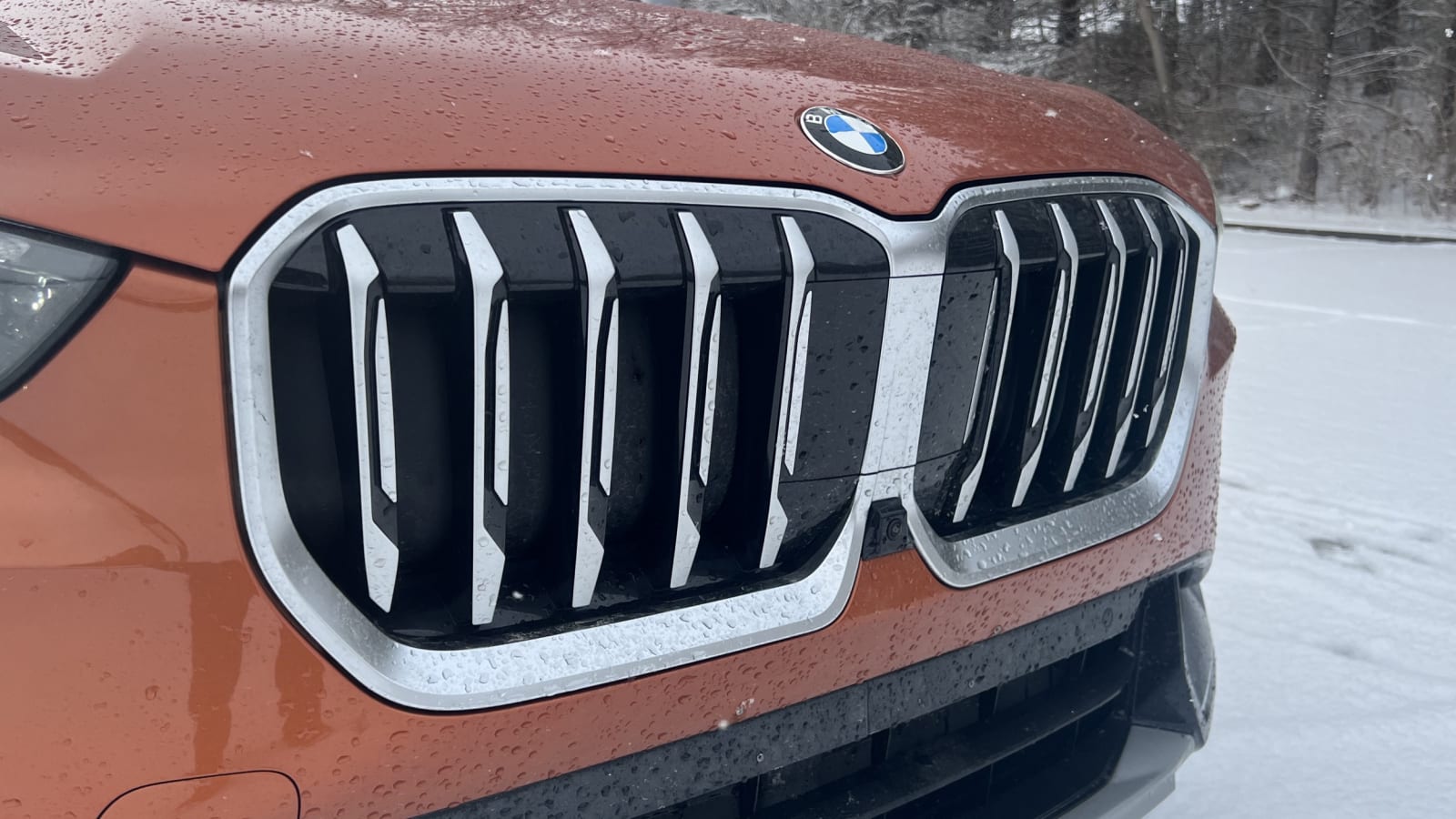
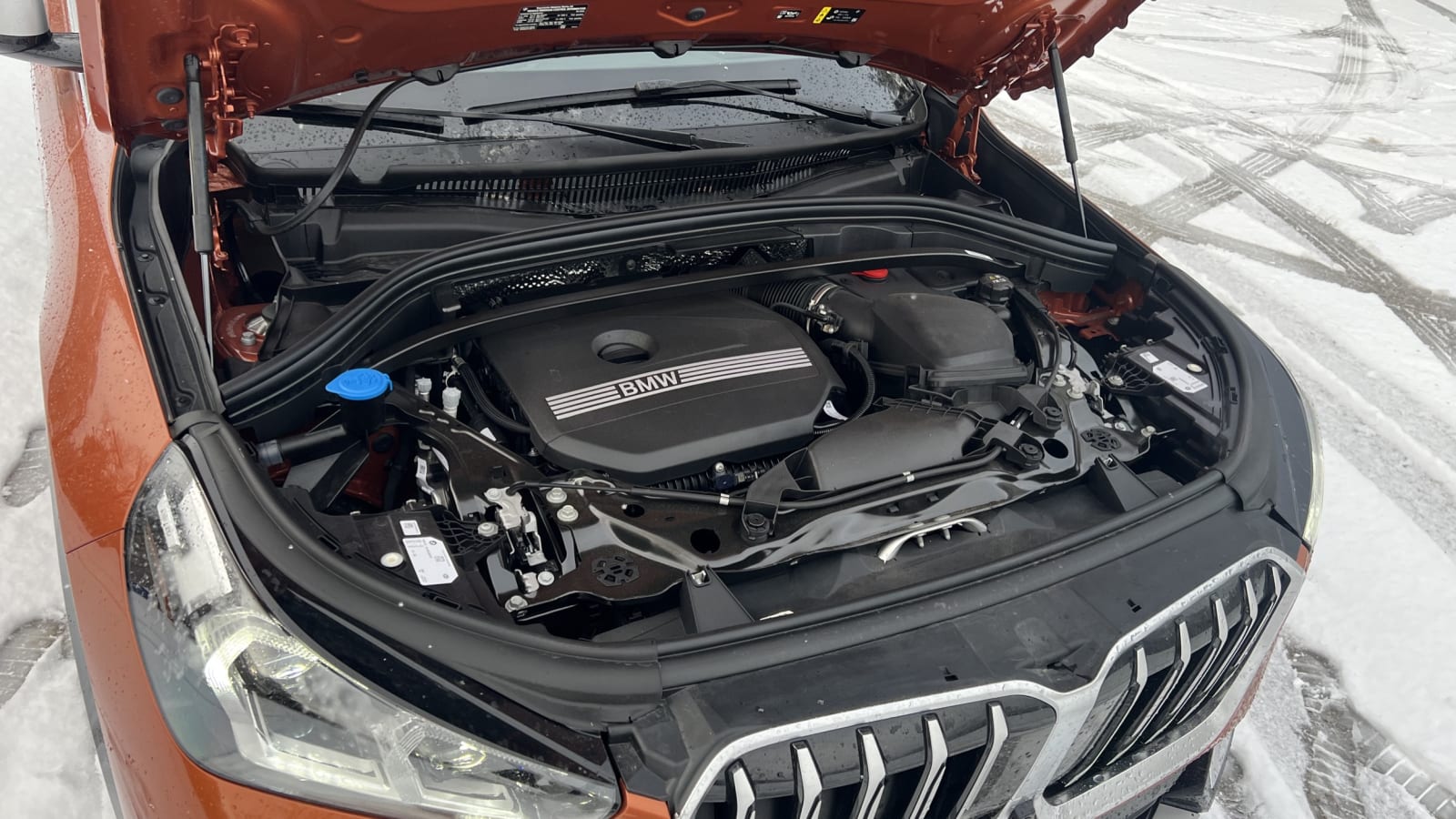
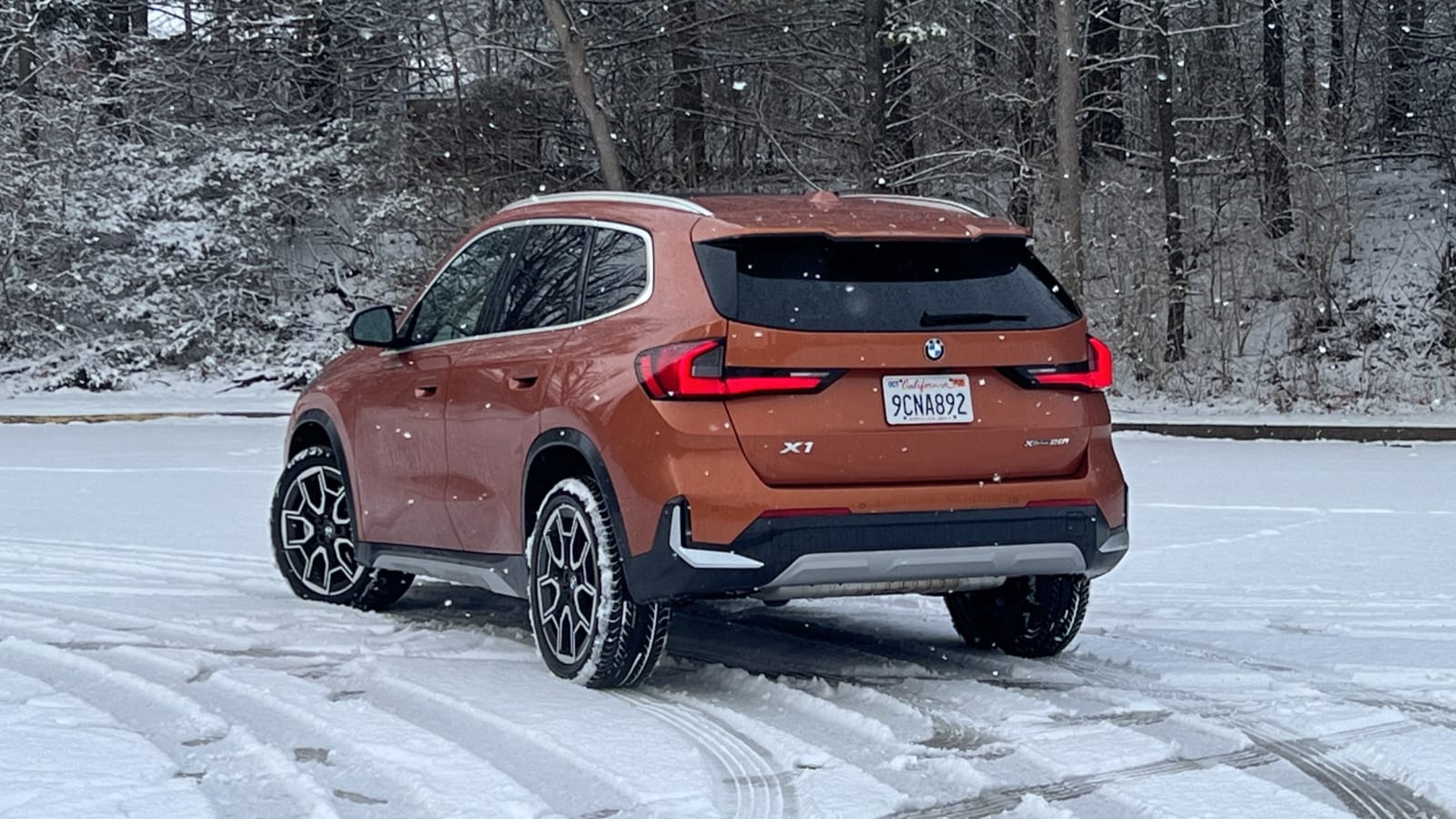
The X1’s surefootedness doesn’t disappear when the roads get wet or snowy. Its all-wheel-drive system reacts quickly and quietly to low-traction situations, keeping the nose pointed right where desired without drama, noise or even a significant loss of acceleration as it corrects for wheel slippage.
The 2023 X1 doesn’t sacrifice on-road comfort for its sporty handling. The standard suspension is good at filtering out the many glaring imperfections in Michigan’s winter-scarred roads. Even at highway speeds, it’s able to skim over gnarly potholes without delivering a shock through either the seat or the steering wheel. The longer wheelbase improves straight-line stability, but isn’t enough to make it feel much bigger in a tight parking lot — one of the great things about the subcompact SUV set.
So yes, the 2023 BMW X1 is as good in real life as it looks in photos and on paper. It’s the luxury crossover we’d choose in this segment if our priority were handling — or appearance — even over the otherwise recommended Mercedes GLB or Volvo XC40. And there’s nothing about the comfort or tech that would steer us away from it, either. Our only hesitations come from the sometimes awkward responses from both the gas and brake pedals. That initial delay in acceleration and the sharp reaction later in the brake travel require increased effort on the driver’s part to perform around-town driving smoothly. Still, they’re quirks most drivers could be convinced to accustom themselves to for what’s otherwise an attractive, comfortable and sporty package.
Related video:
